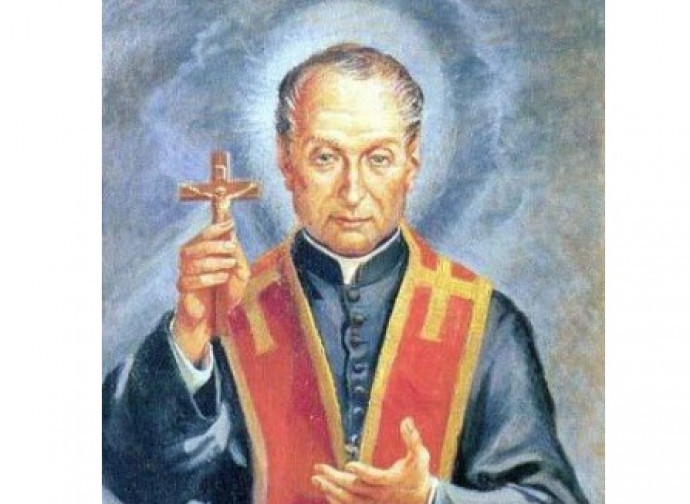Saint Gaspar Bertoni
St. Gaspar Bertoni (1777-1853), who for years suffered from a serious illness, called suffering the “school of God”. He took care to educate young people to know Jesus, teaching them to thank the Lord in both joy and trials.

St. Gaspar Bertoni (1777-1853), who for years suffered from a serious illness, called suffering the “school of God”. He took care to educate young people to know Jesus, teaching them to thank the Lord in both joy and trials.
Gaspar was born and raised in Verona; his youth was marked by several painful events. Among them, the death of his little sister Matilde, when the saint was only nine years old, and the separation of his parents, who split up in 1800, the same year of the priestly ordination of their son. In the meantime, he had witnessed the invasion of the city by Napoleon's troops in 1796: Verona became the scene of clashes between the French and Austrians and for about five years (1801-1805) it was even divided into two parts by the warring powers. During this period the young priest distinguished himself in assisting the sick and war wounded, while at the same time taking care to teach the Catechism.
Don Gaspar soon became a point of reference for the young people of Verona, working to lift them from the scourges of war through authentic Christian education. In 1802, at the parish of Saint Paul, he founded his first oratory, which he placed under Our Lady's protection, calling it “Marian Cohort”. Here, combining cheerfulness with the transmission of a profound sense of the sacred, he instructed the youths on the truths of faith, taught them the immense value of the Mass, and initiated them into the world of work. He himself went around with his young people among the artisans' workshops to have them taken on as apprentices. He created new oratories on this model, although he went through various difficulties, especially due to the Napoleonic decrees on the prohibition and suppression of religious orders and organizations.
In 1808 he was entrusted with the spiritual direction of the Daughters of Charity, created among a thousand difficulties thanks to the tenacity of one of his noble fellow-citizens, Saint Magdalene of Canossa (1774-1835). Two years later the bishop called him to be the spiritual guide of the students of the seminary. The saint followed each seminarian individually, dedicating himself to restoring their souls - many of which had been corrupted by the Enlightenment and revolutionary climate - with prayer and penance. A contemporary, noting the visible fruits after five years under the guidance of Don Gaspar, commented: “The seminary is a monastery of monks rather than of young ecclesiastics”. As a true father, if he saw that there were clerics dedicated to worldliness, he did not hesitate to have them removed. And he taught everyone to trust the divine designs: “A man of prayer”, he wrote, “only goes towards things according to the order that the Lord disposes by his Providence”.
After the fall of Napoleon, he resumed with all his strength the activity of Marian oratories. In 1816, at the Church of the Stigmata of St. Francis, he also founded a congregation of “Apostolic Missionaries” at the direct service of the bishops (in obsequium Episcoporum), later called Stigmatini. Euntes, docete in diocese et mundo, “Go and teach in the diocese and in the world” was the motto with which he exhorted his disciples to proclaim Christ, whom he also imitated in accepting suffering. Because of his illness he was bedridden for the last ten years of his life, but he did not stop guiding souls: priests, bishops, lowly and noble people went to seek his advice on many matters. Among others he was visited by Blessed Antonio Rosmini, God's servant Theodora Campostrini, and a young Saint Daniel Comboni, to whom he said: “Those who have clothed themselves with Christ crucified are allowed no weaknesses”. So Saint Gaspar, adorned with mystical gifts, desired to sanctify himself and offer his suffering for the conversion of sinners right to the end, as his last earthly words reveal: “I need to suffer”.
